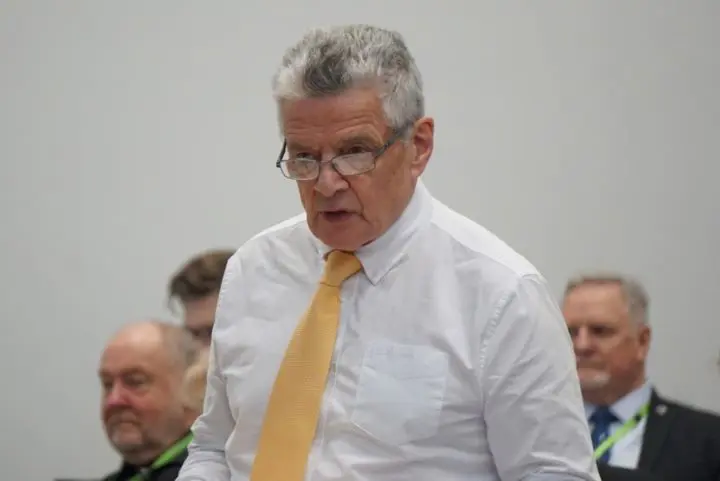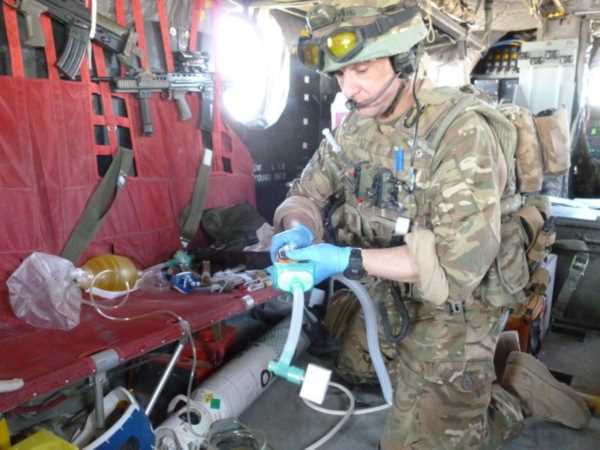What happens in a planning meeting?
On this page:
Which applications go to committee?
Where and when are committee meetings held?
How a request to speak must be made?
What happens if the matter is deferred?
What happens after the committee meeting?
What happens at Planning and Rights of Way (formerly known as Planning and Licensing) Committee and how to register to speak at committee
The County Council has adopted a Code of Best Practice for those elected members serving on its Planning and Rights of Way Committee. The code incorporates a protocol allowing public speaking at meetings of Planning and Rights of Way Committee in relation to planning applications being determined by the Council.
Please note that at the start of the coronavirus pandemic, the Council’s scheduled committee meetings were cancelled. However, the law changed to enable Councils to hold virtual meetings and such meetings, including Planning and Rights of Way Committee, were arranged to deal with any planning decisions that were required during this period. The Government has now directed that Council meeting should now be held in person again. Please see below for more information.
Why you should read this
The information below explains how to register to speak at Planning and Rights of Way Committee meetings before a decision on a planning application is taken. It may be relevant to you if you:
- object to or support an application and have already submitted your views in writing; or
- have been nominated to speak on behalf of an objector or supporter.
Which applications go to Committee?
The Council's Code of Best Practice for Planning and Rights of Way Committee, set out above, confirms that Planning and Rights of Way Committee delegates authority to officers to determine planning applications submitted to the authority apart from those which meet certain criteria. The list of applications which must be reported to Committee for a decision is set out below:
Where and when are Committee meetings held?
Meetings are normally held every six weeks at County Hall on Loughborough Road, West Bridgford, Nottingham. As detailed above, over the last year the Council’s scheduled committee meetings were held virtually to deal with planning decisions that were required during this period.
Following the Government’s announcement that councils should return to “in person” meetings the Council proposes to hold “hybrid” meetings, this will involve some people attending in person with others able to view proceedings remotely. People attending in the council chamber will include county councillors, council officers and speakers, with some availability for others to attend in the public gallery. These places will be limited and allocated at County Hall reception. Covid secure measures will apply, social distancing, one-way routes and sanitising equipment etc.
Who may speak?
Anyone who has made a valid written submission (which shall include those made by email) in connection with an application to be determined at committee, and has informed the County Council of their wish to be notified of the date of the meeting at which the application is to be considered, will be given an opportunity to register to speak at the meeting. As there is a limit on the number of slots available for public speaking, the written submission should ideally have been received by the time the papers for the meeting are prepared – that is ten clear working days in advance of the meeting, as this is the time when invitations to register to speak at committee are sent out.
Speakers may be either in favour of the application, or in opposition to it.
Public speaking is only allowed on planning applications being referred to committee for a decision, (e.g. to grant or refuse permission). Occasionally, progress reports on particular matters are taken for information purposes, or to arrange site visits. No public speaking is allowed in respect of such reports.
Should a speaker not be able to attend in person, or is unable to speak for themselves for whatever reason, someone nominated by them may act as a substitute speaker providing they have written confirmation from the registered speaker that the person can speak on their behalf. If a registered speaker does not attend the meeting, committee will continue to consider the matter on the basis of any written submission made by that person.
Although it is not necessary for local residents to employ specialists or lawyers to speak on their behalf, such circumstances will be permissible. Similarly, groups may choose to employ someone to speak on their behalf if they so wish.
Representatives of national or local organisations and bodies, or spokespersons on behalf of consultees will not be allowed to speak, unless with prior written agreement of the Chair.
How a request to speak must be made
Anyone who has made a valid written submission at least 10 clear working days before committee and who wishes to speak at committee must first register their wish to speak with the relevant officer. It is recommended that you register as soon as possible as the available slots (three in opposition to an application and three in support) are allocated on a ‘first come, first serve’ basis. In any event, registration must take place no later than two clear working days before committee – for example if committee was to meet on Tuesday, the registration to speak must be with the relevant officer by 4pm on the preceding Thursday.
You can register to speak in the following ways:
- Email development.management@nottscc.gov.uk
- Contact the Planning Support Officer on 0115 9932584
Please ensure that you provide a contact telephone number and email address in case the council needs to contact you at short notice before the committee meeting, for example if an item is withdrawn from the agenda.
Where a group of representatives wish to speak, it is recommended that they nominate a spokesperson to address the committee on their behalf and that person registers their wish to speak as soon as possible.
How does the scheme operate?
Following the return to “in person” meetings confirmed speakers will be invited and are encouraged to attend in person. They will be advised on the arrangements for doing this. However, if this is not possible, or nominated speakers do not wish to do so, speakers will be invited to join the meeting via the Microsoft Teams app. If you have the Microsoft app on your device, you will be able to join via video, otherwise you can join solely by telephone (audio only). You will be contacted by an officer in advance of the meeting to check your device’s capability and to clarify the arrangements for the meeting.
Before the meeting takes place, all speakers will be asked to email a copy of their written summary or transcript to assist in the production of the committee minutes.
When the meeting begins, full details of the arrangement for public speaking will be relayed to all those attending, although further details can be found below in the ‘What happens in the meeting’ section of this webpage.
Those allowed to speak may not make additional written submissions to the committee, nor will they be allowed to forward any further documentation such as photographs or plans. Any supplementary information or representations should have been made to the council in advance. The use of overhead projectors, slide projectors or PowerPoint presentations is not allowed.
What happens in the meeting?
The Chair will introduce the item, and ask the relevant Officer to present the item, who will highlight the key material planning matters considered in reaching the recommendation in the report.
Before speakers begin their address to committee, they will be asked to say who they are, where they live or who they represent.
The Chair will invite any speakers to address the committee in this order:
a) Those speakers who have been properly registered to speak in opposition to the application
b) Those speakers who have been properly registered to speak in favour of the application, including applicants and/or their agents seeking planning permission
c) Representatives of relevant parish councils followed by representatives of relevant district/borough Councils.
Note: This can include speakers on behalf of authorities which adjoin the area within which the application under discussion is located, including adjoining county council representatives. (Other county council members not on committee may speak. See paragraph below).
If a speaker from an authority mentioned above is speaking on their own behalf, or on behalf of local residents but is not speaking as a formal representative of a district, borough or parish council, or on behalf of an adjoining authority, they should register to speak in the normal way as a private individual having first made a written submission.
Those persons addressing the committee are not allowed to ask questions of members, officers or of each other.
Through the Chair, members may request the speaker to clarify any particular point, although it is emphasised that members must not enter into debate with the speakers on the merits or otherwise of the proposals at that point of the proceedings.
How long may speakers take?
Each speaker, whether speaking as an individual or as part of a group (or deputation), will have a maximum of three minutes. For example, if more than one representative of an applicant or action group register to speak, they will have three minutes between them, not three minutes each
Speakers will be advised when the final minute of their allotted time has been reached, so that they may conclude their presentation ensuring all relevant points are made to committee. They will be asked to end their speech as soon as the three-minute period has been completed.
County Council Members
Any county councillor who considers that the item under consideration may have a relevant impact on their division, and who is not on committee, may, with the consent of the meeting, address committee, although they cannot vote. They are allowed to speak for a maximum of 10 minutes. Such members should advise the Clerk of the Committee, or Chair, well in advance of the meeting.
In the event of this occurrence, the member(s) shall address the committee after the public speaking session but before the relevant officer has responded on any points raised during the public speaking session.
What can and cannot be said?
Speakers must address only issues relevant to the matter in hand and its determination by the committee. This will include the effects of the proposal on the environment and impact on them as local residents. Speakers must not refer to non-material issues such as property rights, any covenants relating to land, competition, moral or personal issues, loss of view, or impact on property value.
Speakers must not make any defamatory comments, nor use insulting or unacceptable language, nor in any way behave so as to disrupt or delay the work of committee. The Chair shall have the discretion to curtail the speaking opportunity in such circumstances, may ask speakers to leave the room, or in extreme circumstances may adjourn the meeting.
What happens next?
Following the public speaking and speeches by non-committee members, the Chair may ask the relevant officer to comment on any other matters of fact arising from what has been said.
You will remain in the Teams meeting call for the rest of the agenda item but are not allowed to join in with the discussion unless specifically requested by the Chair to clarify a matter that has arisen during debate, and which cannot be dealt with by officers.
Members will then debate the application, and in line with current standing orders will reach a decision without any further public involvement.
Once the decision is made and the agenda item has been concluded, speakers will be disconnected from the Microsoft Teams call but can continue to observe the rest of the meeting via the YouTube channel.
What happens if the matter is deferred?
Should the application under consideration be deferred for a site visit or for any other reason, following a debate at the meeting, no further opportunity for public speaking shall be allowed unless a period of six months or more has elapsed.
Only in exceptional circumstances will additional public speaking outside of the above arrangements be allowed, and that shall only be with the agreement of the committee, and may, for example, be when new evidence or information has come to light, or where substantial changes have been made to a proposal, which renders it significantly different from what had been previously considered. The test will be whether further public speaking will assist members of the committee to come to a more well-informed decision.
Should the item be deferred before the public speaking period had commenced, or withdrawn from the agenda entirely, those registered to speak will be notified of the date when the committee will consider the matter, and they will be given the same opportunity to speak at the later meeting.
What happens after the Committee meeting?
Everyone who has made written representations will be notified in writing of the committee’s decision if they have previously requested so.
Access/Other formats
This leaflet and the registration form can be made available in other formats on request. County Hall is wheelchair accessible. If you have any other special requirements, please contact us on 0115 9932584.
Contacting us
Postal address: Planning Support Officer, Development Management, County Hall, West Bridgford, Nottingham, NG2 7QP
Telephone: 0115 9932584








